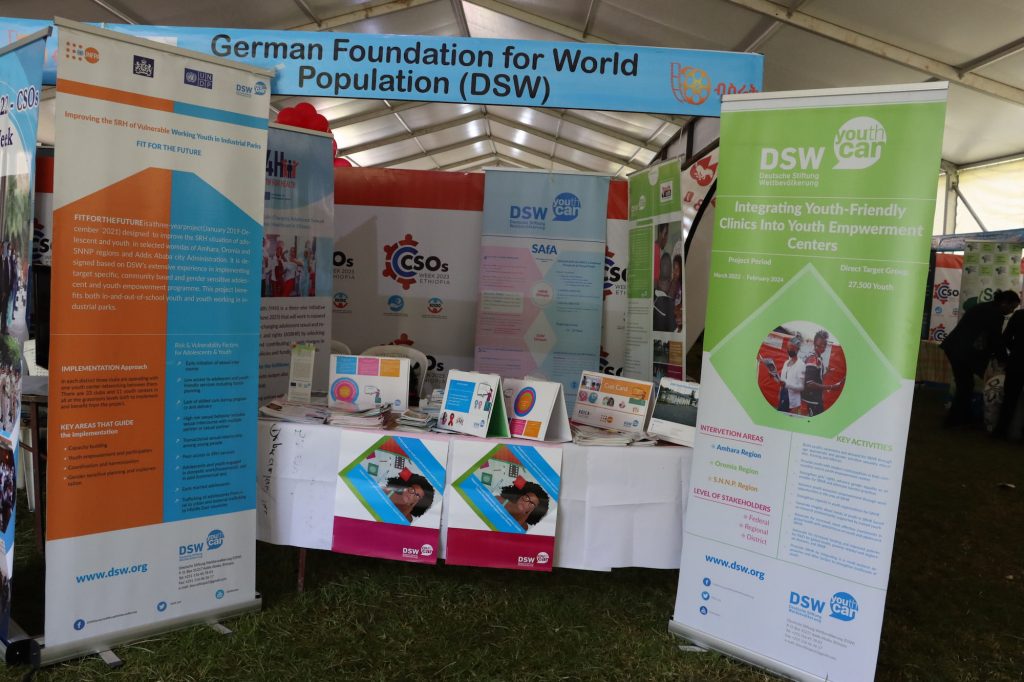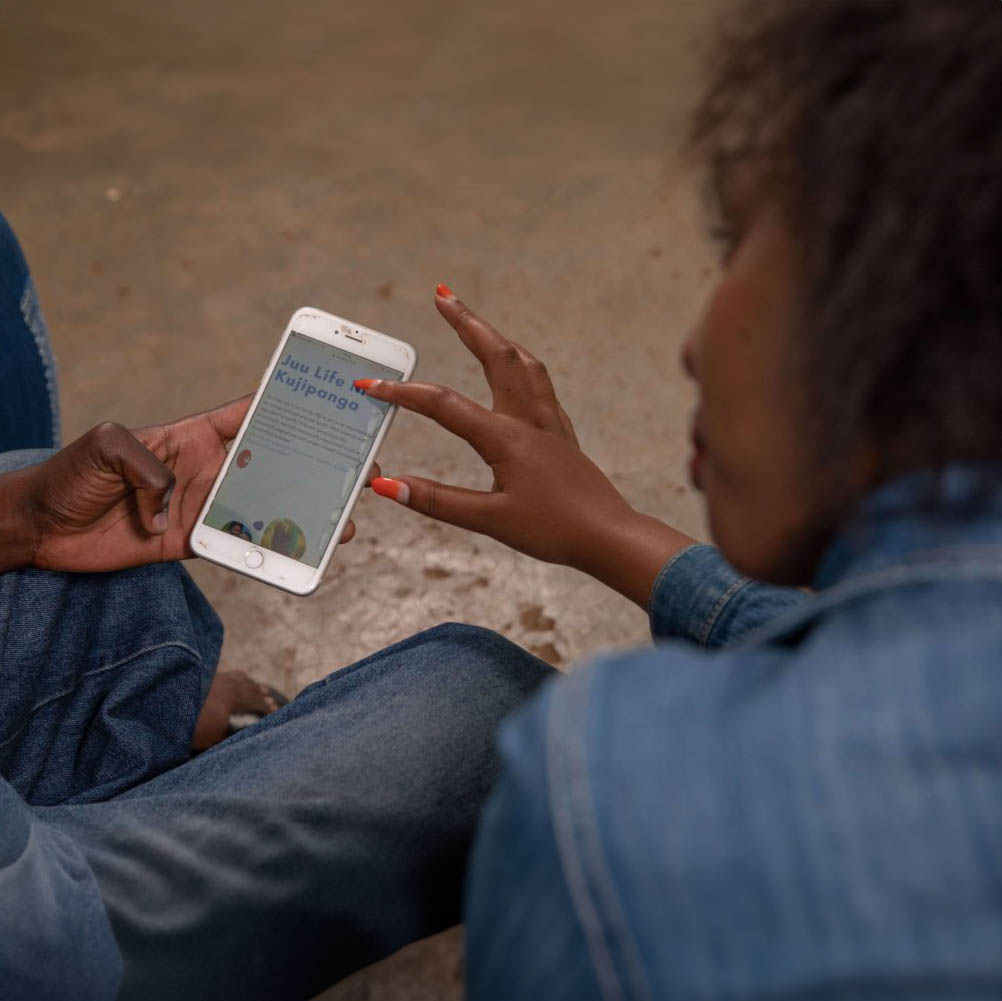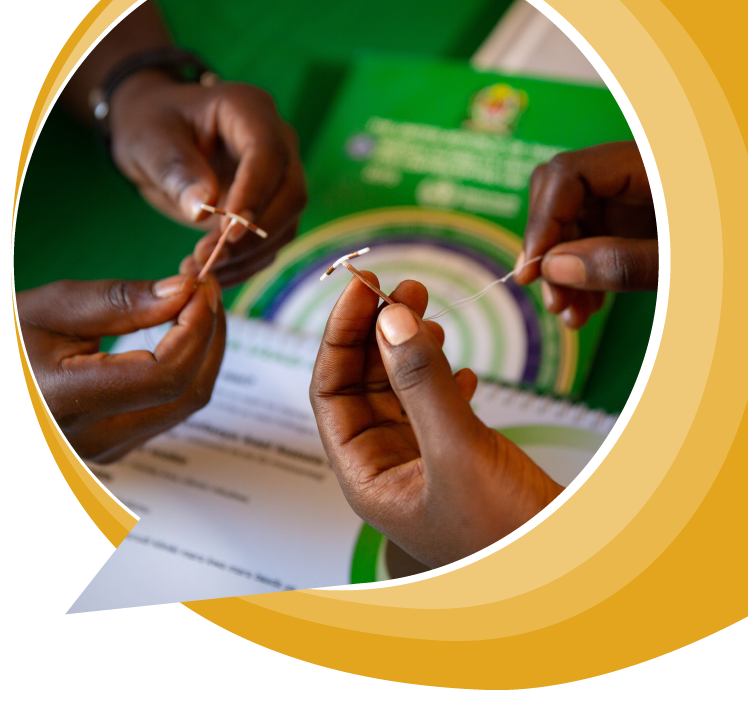
Sexual and reproductive self-determination
Sexuality education and access to modern contraceptives
The right to bodily autonomy is a human right that many people, especially women, are still being denied. It is a central component of sexual and reproductive health and rights (SRHR) and a key element in the struggle for gender equality. It is a cornerstone of individual freedom and dignity, ensuring that everyone has control over their own bodies, sexual choices and reproduction without fear of coercion, violence, or discrimination. This right is becoming increasingly restricted in many countries today, particularly in sub-Saharan Africa, where it challenges deeply rooted patriarchal structures.
The background
257 million* women worldwide have an unmet need for modern contraceptives
One in four women of reproductive age are unable to decide for themselves if, when, with whom and how many children to have. They do not want to get pregnant, but have no means of contraception. According to a 2018 study by the Guttmacher Institute, 24 percent of women of reproductive age in sub-Saharan Africa have an unmet need for modern contraception. In West Africa, the figure is 36 percent.
39 million people were living with HIV and AIDS
AIDS is a severe disease that targets the immune system, caused by the HI virus. It particularly affects men who have sex with men as well as women of all ages. Worldwide, every second new HIV infection is a woman (2023). In numerous regions of sub-Saharan Africa, young women (aged 15-24) remain up to three times more susceptible to infection than men of the same age. Widespread prevalence of other sexually transmitted infections, directly linked to HIV, exacerbates gender and other inequalities, contributing to violence, stigma, and discrimination. Ultra-conservative laws violate the human right to sexual self-determination and impair people’s ability to fully protect themselves.
121 million* unintended pregnancies every year
Every second pregnancy worldwide is unintended. In low-income countries, one in four women does not use modern contraception, even when they want to prevent pregnancy. This is due to concerns about side effects, irregular sex, a partner’s negative attitude towards contraception and often inadequate supplies.
34.4 births per 1,000 inhabitants in sub-Saharan Africa
The average birth rate in sub-Saharan Africa surpasses that of other global regions, posing substantial economic, educational, and socio-economic challenges for these countries. First-time mothers in the region are much younger than in other regions of the world. One in ten girls there have their first child between the ages of 15 and 19 (UNFPA 2023). Granting young people, particularly young women, early access to information on sexuality and contraception can prevent unintended pregnancies, enhance family planning, and foster economic and political participation.
No right to sexual self-determination for many women
Traditional gender roles and social norms severely limit the sexual empowerment of girls and women in some regions of sub-Saharan Africa. Control over one’s own body, access to health services and the right to a safe abortion are all part of reproductive self-determination. Every year, 5.1 million women require emergency medical care as a result of unsafe abortion. For girls aged 15-19, complications during pregnancy and childbirth are the leading cause of death – often as a result of unsafe abortion.
* These figures are based on our sources but are estimates due to the difficulty of collecting empirical data.
One of our key goals is to inform young people about the importance of making their own decisions, contraception and family planning. They should be able to decide for themselves if, when and with whom they want to have children. As part of our initiative, we are expanding our services to offer young people a comprehensive platform for one-stop access to sexuality education, counselling and modern contraceptives
Why young people in sub-Saharan Africa urgently need access to contraception and sexuality education
Sexual and reproductive rights are part of the individual dignity, freedom and self-determination to which every person is entitled. Comprehensive sexuality education, access to secondary education and gender equality are key to greater reproductive self-determination. According to United Nations projections, the population of sub-Saharan Africa will almost double from 1.4 billion today to 2.5 billion by 2050. Already today, a third of the population is between the ages of 10 and 24. The future of the region depends on these young people overcoming poverty, conflict, and hunger to live prosperous and peaceful lives. Countries like Bangladesh have shown that economic growth is possible when young people have access to health care, education and fair work opportunities. Government investment in these areas can accelerate socio-economic development while ensuring sustainable, rights-based population development. This includes ensuring that young people have age-appropriate access to sexuality education and contraception to avoid unintended pregnancies and the associated risks.
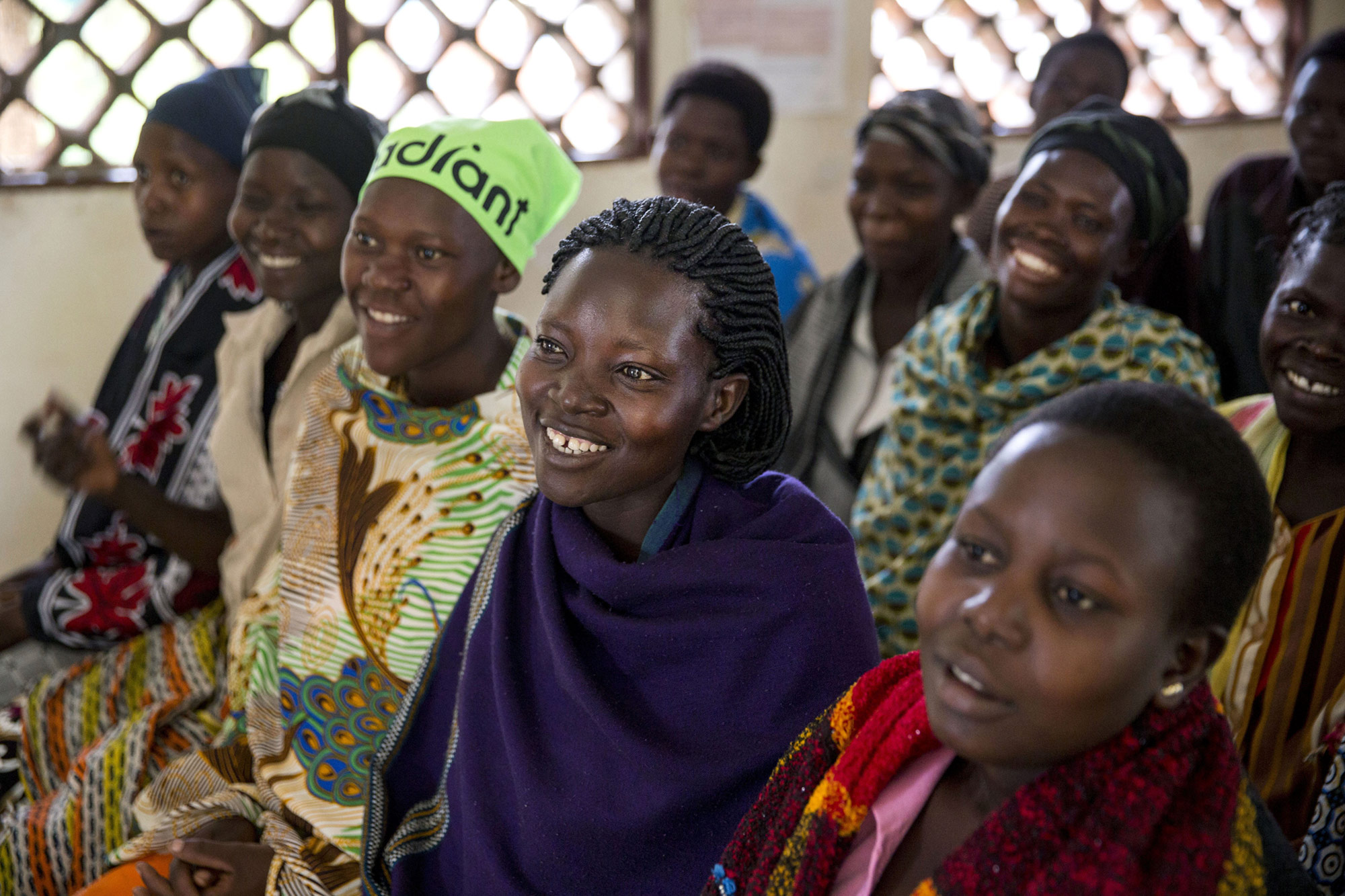
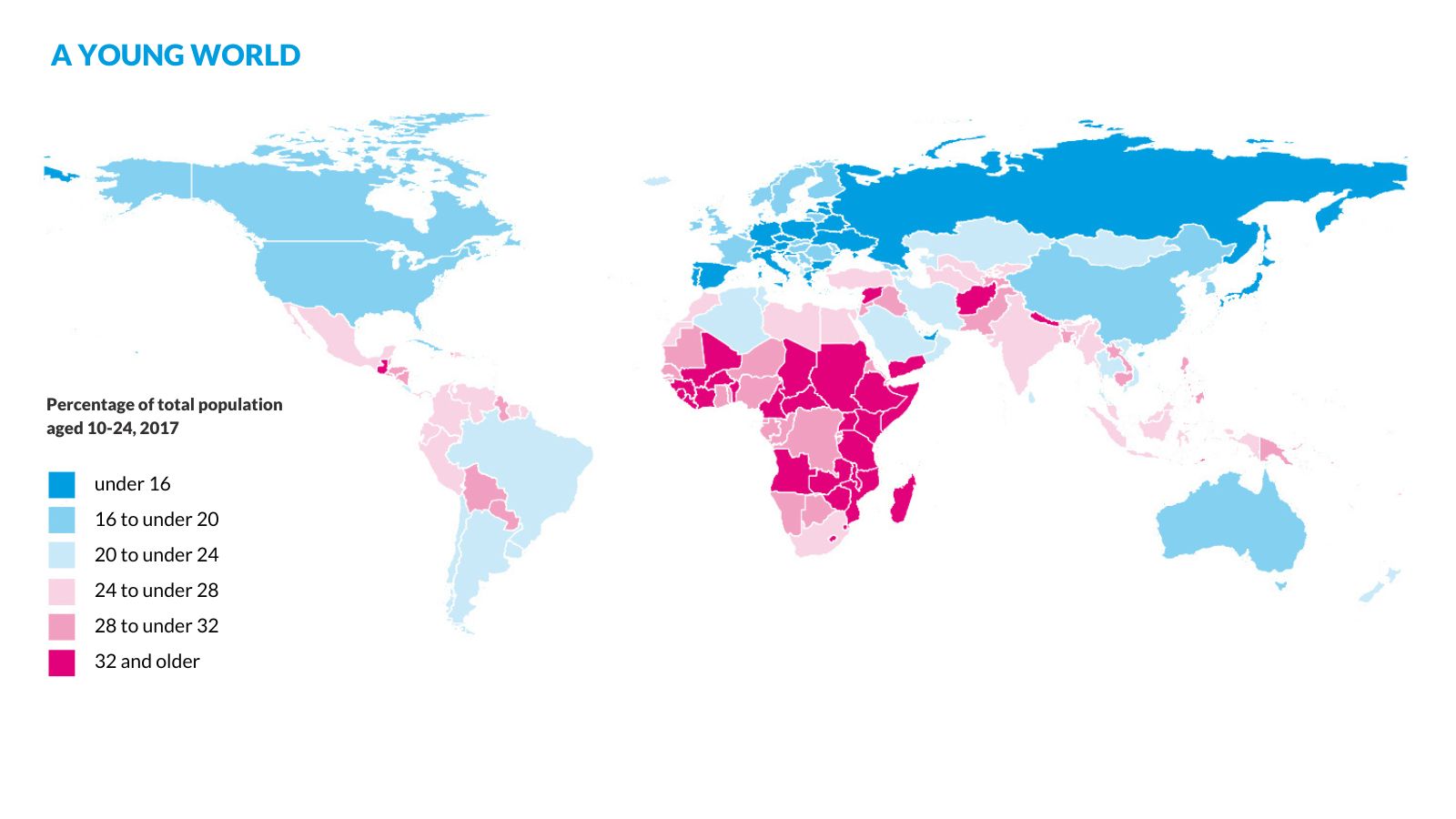
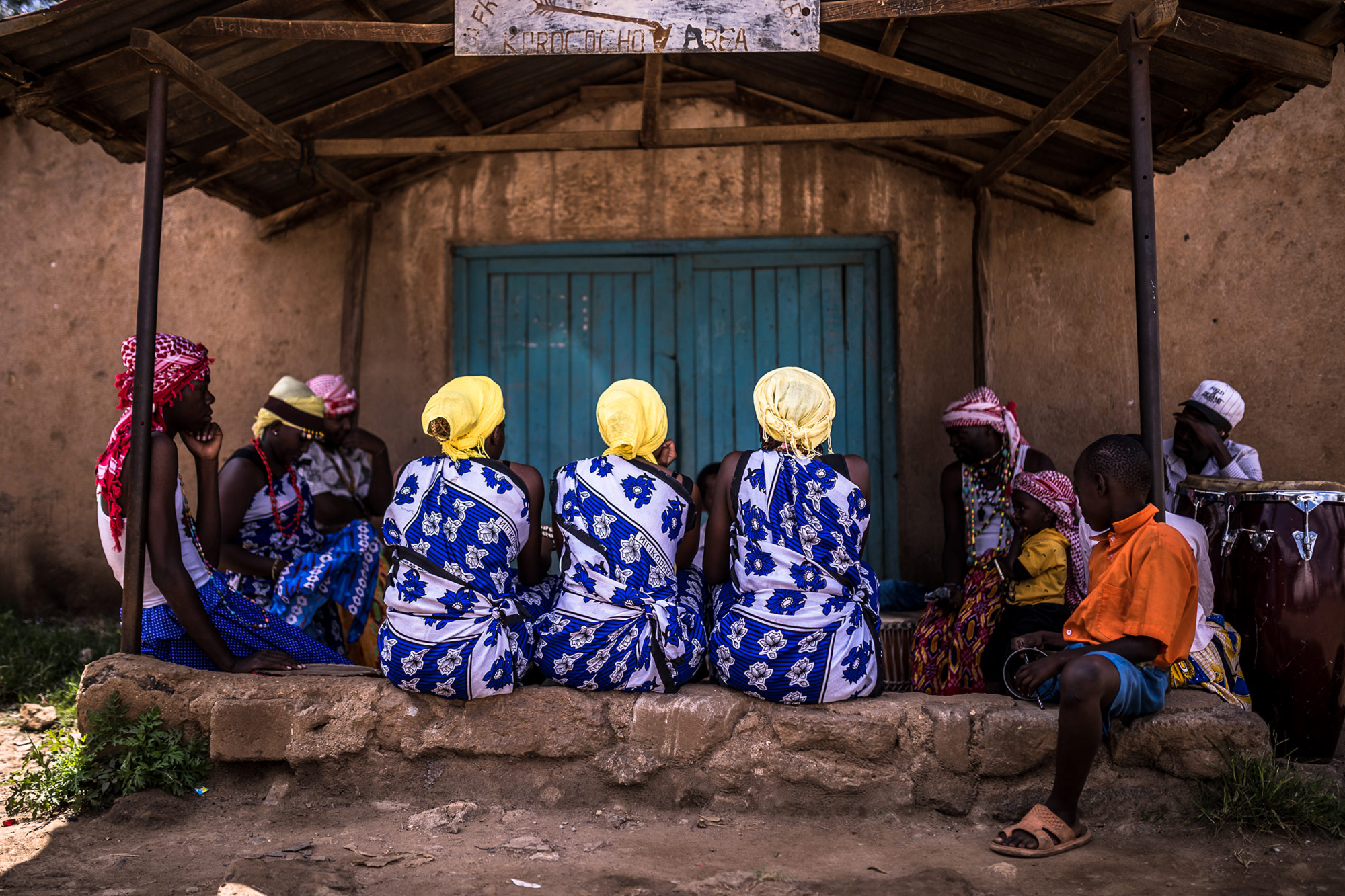
Sexual and reproductive health is a human right
In sub-Saharan Africa, young people – and girls in particular – continue to face widespread violations and denial of their human rights. In 1994, at the International Conference on Population and Development in Cairo, 179 governments adopted a Programme of Action that placed sexual and reproductive health and the reproductive rights of all people at the centre of population policy. A total of 179 countries committed to providing resources and appropriate information on sexual and reproductive health for all ages. Sexual and reproductive health and rights encompass all aspects of physical and mental well-being, emphasizing the freedom of choice regarding sexuality and family planning. These objectives have been recently reaffirmed by states in the Sustainable Development Goals (SDGs), aiming to reduce maternal mortality, combat HIV and AIDS, and enhance access to family planning and sexuality education. Young people play a central role in achieving these goals and are integral to the development of sub-Saharan Africa.
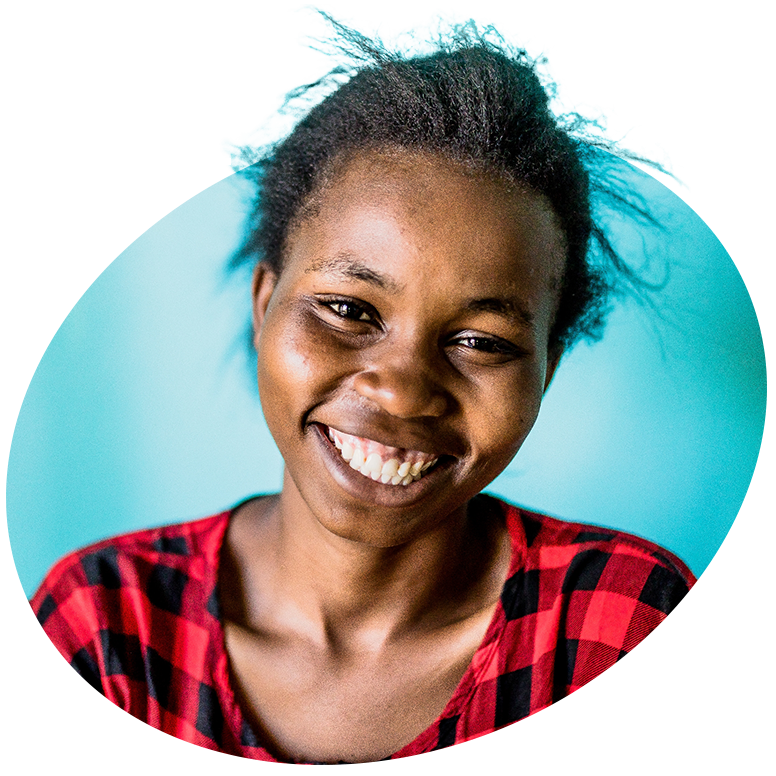
What we are committed to:
Self-determined
contraception and
family planning
Bodily autonomy – the right to decide if, when and with whom a woman decides to have children – is a human right. That is why we are committed to it.
You are currently viewing a placeholder content from Youtube. To access the actual content, click the button below. Please note that doing so will share data with third-party providers.
More InformationRights-based, sustainable population development goes hand in hand with sexuality education, gender equality and secure access to modern contraception.
*Note: This video is in German. Please turn on the subtitles to read along in English
Age-appropriate sexuality education, menstrual hygiene and access to modern contraceptives are particularly important for adolescents in sub-Saharan Africa, as they have a wide range of positive effects on the health, well-being, and future prospects of these young people.
Firstly, comprehensive sexuality education gives young people a better understanding of their physical changes and sexual needs. Through education about sexual health, sexually transmitted infections (STIs), and contraception, they learn how to protect themselves and minimise risks. This is crucial as sub-Saharan Africa still has a high rate of unintended pregnancies and STIs.
Secondly, access to contraceptives enables young people to take advantage of their educational and vocational opportunities, to use contraception in a self-determined and responsible manner, to organise their family planning together and to improve their economic situation independently.
Early and unintended pregnancies often mean that young girls have to drop out of school and their future prospects and financial independence are significantly impaired. By using modern contraceptives, they can continue their education, protect their health, pursue their careers and lead independent, financially self-sufficient and confident lives.
Thirdly, improved sexuality education and access to contraceptives help to reduce the number of new HIV infections. Young people in sub-Saharan Africa are particularly at risk of contracting HIV. The provision of condoms and education about safe-sex can help prevent infection and reduce the spread.
Overall, comprehensive sexuality education and access to modern contraceptives help to improve the health and well-being of young people in sub-Saharan Africa and give them the opportunity to realise their full potential. It is an investment in the future of this young generation and in the sustainable development of the entire region.
Support us
Donate online – make a difference on the ground. Support our work and political dialogue for sexuality education and voluntary family planning with your contribution.
